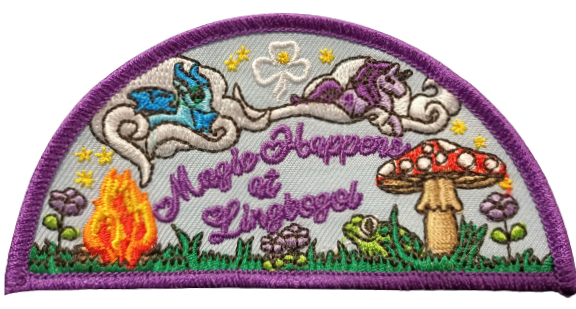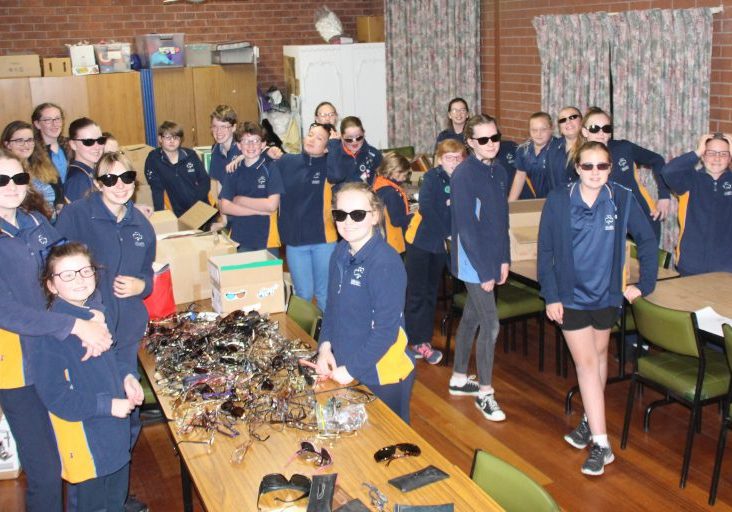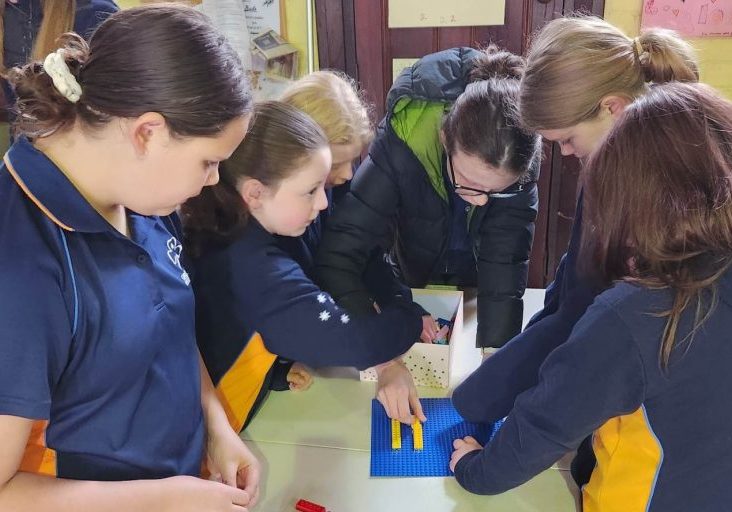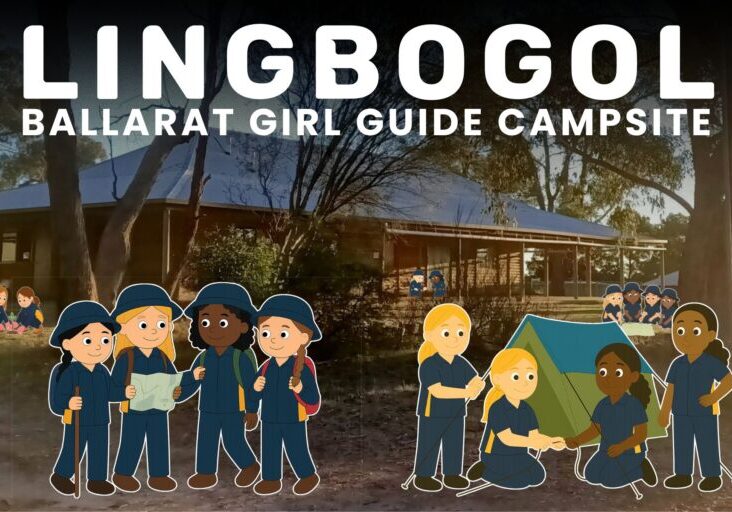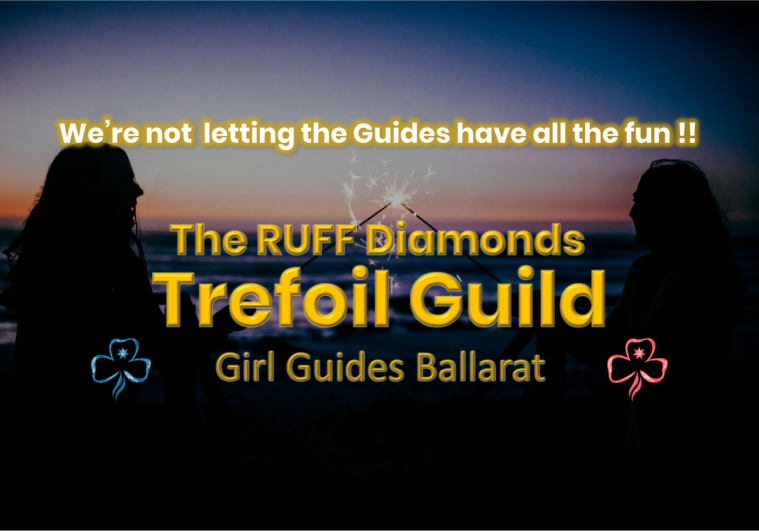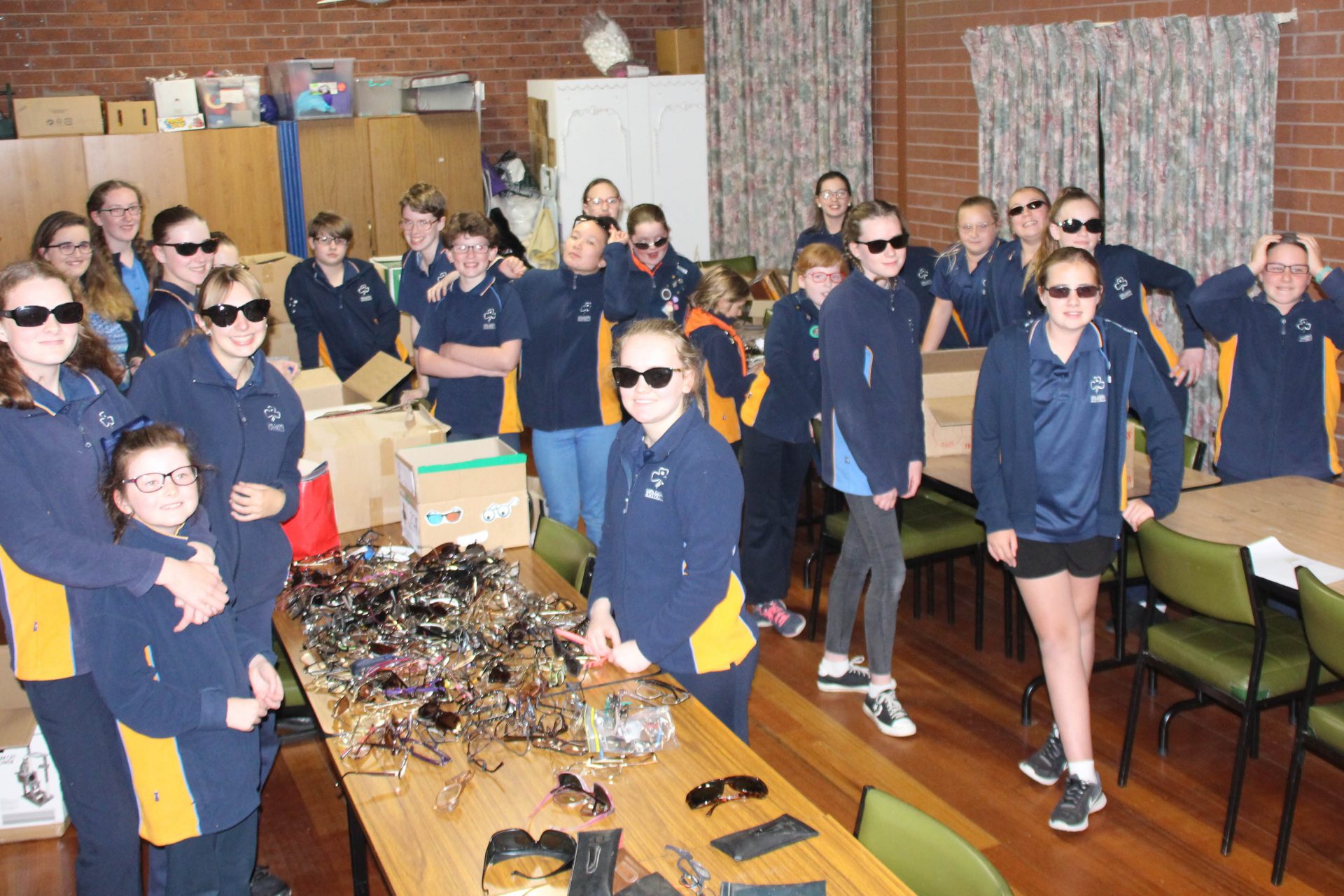Fundraisers & Public Support
Throughout the year, many Guide Units will organise fundraising activities or events. The funds raised from such events are allocated to the many expenses incurred by each group, such as hall rental, leadership training, provision of activities and maintenance of the campsite.
Current Fundraisers
Other Ways to Help
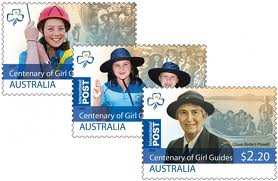 Special fundraising events are held on an annual basis, and some run constantly, such as collecting aluminium cans for recycling.
Special fundraising events are held on an annual basis, and some run constantly, such as collecting aluminium cans for recycling.- Many units collect articles to use for craft items, such as CDs, stamps and ring-pulls.
- One of our service projects since 2018 has been helping the Lions Club Recycle for Sight program collect used glasses.
- Our Sponsorship program allows local businesses to fund the membership fees of volunteer leaders
If you are able to help with collectible items, or support your local Guide units in another way, feel free to contact us.
No More Corks
 As of 2011, there is no longer a need for Girl Guides to collect corks for recycling as other community organisations have taken up the cause.
As of 2011, there is no longer a need for Girl Guides to collect corks for recycling as other community organisations have taken up the cause.
History of Guiding & Corks
Prior to 1990, discarded corks were destined for landfill. Now they are collected by Guide groups throughout Australia as part of their environmental and fundraising activities. The Guides Australia Cork Recycling Program has resulted in the collection of over 90 million corks (9800 tones) nation-wide over the past 11 years.
These corks are sold to ACL Comcork – an Australian owned company that uses 100% recycled material in their blend of rubber and cork range of flooring. This is then used in kindergartens, gyms, retirement homes, schools and boats. Corks were recycled into items like place mats, coasters, floor tiles, gaskets, dart boards or hockey balls.
The funds raised help Guides Australia develop its outdoor activities program, resources and facilities for 40,000 Australian Guides.
Did you know ……. Cork is a natural product from the bark of the cork oak (Quercus suber). The cork tree is not harvested until it is 25 years old. The cork is seasoned for six months then boiled in purified water to remove contaminants. They get cut, polished, washed in a hydrogen peroxide solution, dried, branded and coated with silicone and paraffin.
Cork is one of the few forms of packaging that is completely environmentally friendly – it is renewable, fully recyclable, biodegradable and totally natural.
The first cork used in champagne bottles was in 1680, an idea of the French Benedictine monk Dom Perignon.
Cork is inert, lightweight, impermeable to liquids and flexible. It can be compressed then recover to its original size. It is also fire resistant, hard-wearing and a great insulator.

